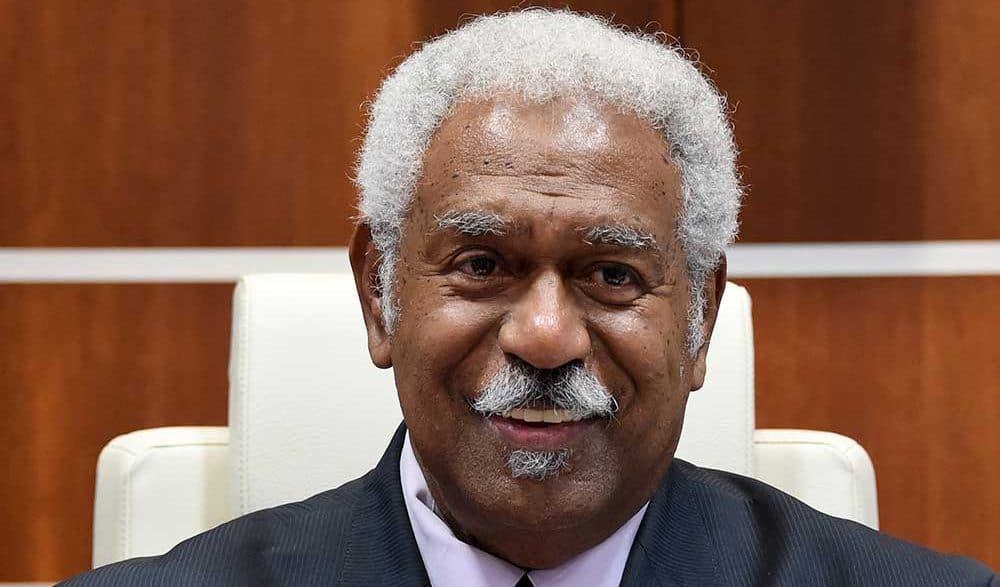A New Caledonian pro-independence leader says the advice of the International Court of Justice is being sought over the contested 2021 referendum on independence from France.
Roch Wamytan, who is the president of New Caledonia’s Congress and a senior member of the FLNKS movement, told a UN decolonisation committee meeting in Indonesia that his side considered holding the vote violated the Kanaks’ right in their quest for self-determination.
New Caledonia has been on the UN decolonisation list since 1986, and under the terms of the Noumea Accord three referendums on restoring New Caledonia’s full sovereignty were held between 2018 and 2021.
The date for the last one was set by Paris but because of the impact of the COVID-19 pandemic on the Kanak population, the pro-independence parties asked for the vote to be postponed.
The French government refused to accede to the plea and as a consequence, the pro-independence parties boycotted the poll in protest.
Wamytan told the meeting in Bali that the final referendum went ahead “under pressure from the French state with more than 2000 soldiers deployed and under a hateful and degrading campaign against the Kanaks”.
A total of 57 percent of registered voters stayed away, almost halving the turnout over the preceding referendum in 2020.
Among those who voted, more than 96 percent rejected independence, up from 56 percent the year before.
In view of the low turnout, Wamytan said “it is inconceivable that one can consider that a minority determines the future of New Caledonia”.
However, the French government insists that the vote was legal and binding, being backed by a French court decision which last year threw out a complaint by the customary Kanak Senate, calling for the result to be annulled.
The court found that neither constitutional provisions nor the organic law made the validity of the vote conditional on a minimum turnout.
It added that the year-long mourning declared by the Kanak customary Senate in September 2021 was not such as to affect the sincerity of the vote.
The court also noted that by the time of the referendum on 12 December, more than 77 percent of the population was vaccinated.
The anti-independence parties in New Caledonia also consider the referendum outcome as the legitimate outcome despite only a tiny minority of the Kanak population having voted.
The FLNKS has been pleading for international support to uphold the rights of the indigenous people and in its campaign to have the last referendum annulled.
The Melanesian Spearhead Group said in 2021 that the referendum should not be recognised but the chair of the Pacific Islands Forum Mark Brown did not back the move when asked about it this month, saying the Forum would not “intrude into the domestic matters of countries”.
Roch Wamytan told the Bali meeting that “international bodies are our last resort to safeguard our rights as a colonised people”, adding that French domestic law has failed to give the Kanaks such protection.
He pleaded for the UN decolonisation committee to support the FLNKS in its case at the International Court of Justice.
Wamytan said the ICJ was established with one of the principal purposes of the United Nations, which is to maintain, by peaceful means and in accordance with international law, peace and security.
He also said he would like to get support for an official request so that the FLNKS can get observer status at the United Nations.
Another Kanak leader Julien Boanemoi told the gathering the decolonisation process in New Caledonia was at risk of backtracking, alleging that France was engaged in a modern version of colonisation.
He said with the French proclamation of the Indo-Pacific axis, the Kanak people felt a repeat of the French behaviour of 1946 and 1963 when Paris withdrew the territory from the decolonisation list and stifled the pro-independence Caledonian Union.
Boanemoi said with the lack of neutrality of the administering power France, he wanted to warn the decolonisation committee of “the risks of jeopardising stability and peace in New Caledonia”.
On Wednesday, the French interior minister Gerald Darmanin is due in New Caledonia for talks on a new statute for the territory.
Central to his talks with the FLNKS on Friday will be discussions about the roll used for provincial elections.
Darmanin signalled in March that the restricted roll would be opened to more voters, which the FLNKS deems unacceptable. Last month, the president of the Caledonian Union, which is the main party within the FLNKS, said there was a risk of there being no more provincial elections if the rolls changed.
